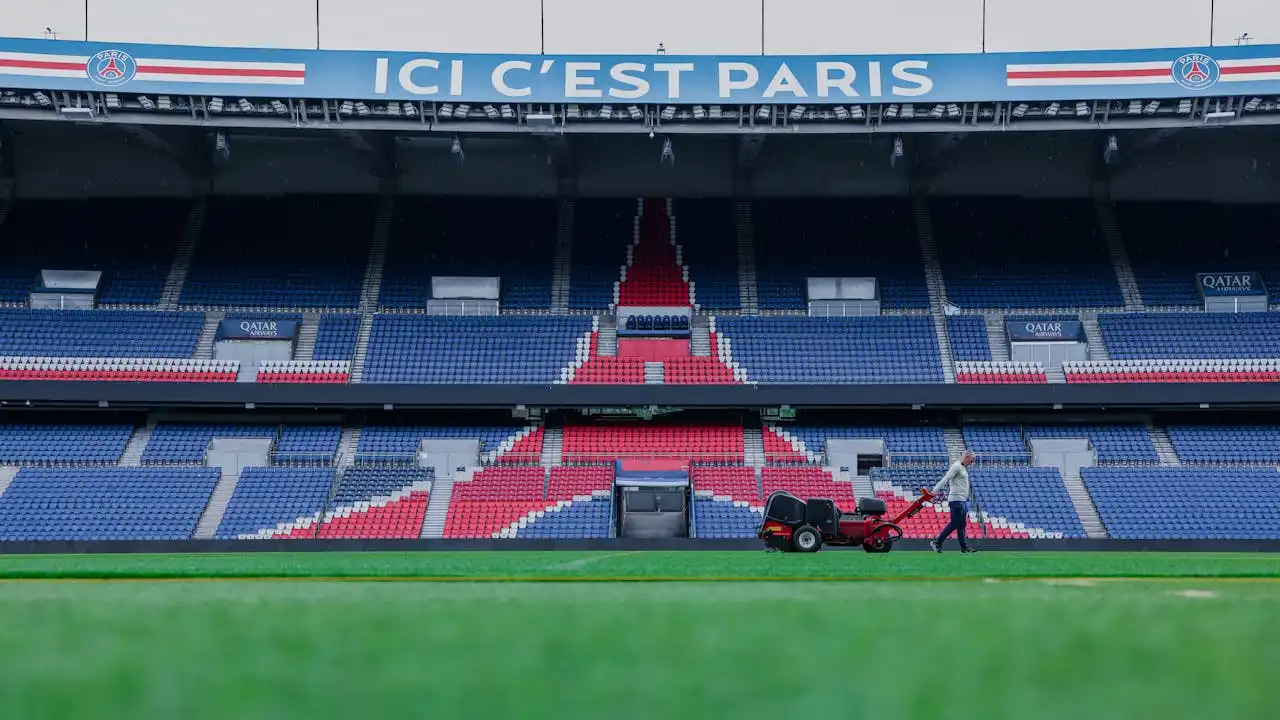Remember Paris Saint-Germain from, say, 2010? For many football fans outside of France, they were, well, just another club. A decent outfit, sure, with a rich history and a loyal fanbase, but certainly not a global powerhouse. They weren't winning titles consistently, let alone making waves in the Champions League. Fast forward a little over a decade, and PSG isn't just a club; it’s a phenomenon, a lifestyle brand, and a perennial headline-maker, boasting some of the planet's most iconic footballers. And at the heart of this audacious transformation stands Nasser Al-Khelaifi, the Qatari businessman whose vision, backed by the immense financial muscle of Qatar Sports Investments (QSI), didn't just change PSG – it fundamentally altered the landscape of modern football. The story begins in 2011 when QSI, a subsidiary of Qatar's sovereign wealth fund, took over PSG. Suddenly, the Parisian club, once a sleeping giant, woke up with a roar. Al-Khelaifi, a former professional tennis player and a close confidante of the Emir of Qatar, Sheikh Tamim bin Hamad Al Thani, was appointed chairman and CEO. He wasn't just a figurehead; he was hands-on, embodying the ambition and resources of a nation. The immediate goal was clear: turn PSG into one of the biggest clubs in the world, capable of competing for the Champions League, Europe's most coveted prize. No small feat for a club that hadn't won the French league in nearly two decades. Their approach was anything but subtle. PSG hit the ground running, shelling out serious cash for top-tier talent. Javier Pastore was one of the first big statements, arriving for a then-record fee in France. Then came Zlatan Ibrahimović, Thiago Silva, Edinson Cavani, David Beckham, and Angel Di Maria, to name a few. It was a clear signal: PSG was open for business, and they weren't messing around. This wasn't just about signing good players; it was about attracting personalities, turning heads, and injecting star power into a league that, let’s be honest, often struggled to retain its biggest names. But the Al-Khelaifi impact wasn't just about splashing cash on the pitch. It was a holistic strategy to build a global brand. PSG embraced marketing like never before. Think fashion collaborations, a dedicated eSports division, international tours to America and Asia, and a massive push on social media long before many traditional clubs fully grasped its power. They were selling more than just football; they were selling the Parisian dream, blending sport with culture and lifestyle. This savvy approach saw PSG's commercial revenues skyrocket, elevating them from a French club to a truly global entity, recognized from New York to Tokyo. Then came the watershed moment: the summer of 2017. Neymar Jr. arrived from Barcelona for a mind-boggling €222 million, completely blowing everyone's minds and shattering the world transfer record. Just weeks later, Kylian Mbappé, football’s future king, joined from Monaco. These weren't just transfers; they were seismic shifts in the footballing landscape, demonstrating a financial might that few could rival. And if that wasn't enough, in 2021, PSG pulled off the unimaginable, signing Lionel Messi after his emotional departure from Barcelona. Suddenly, the PSG front line read Messi, Neymar, Mbappé – a trio of arguably the greatest attacking talent ever assembled. It was a "Galacticos" strategy on steroids, a direct challenge to the old guard of European football. On the pitch, the domestic results have been undeniable. PSG has dominated Ligue 1, winning title after title, often with ridiculous points margins. But the Holy Grail, the Champions League, has remained tantalizingly out of reach, a bit of a head-scratcher given the sheer talent at their disposal. They've reached a final and a semi-final, but haven't quite managed to cross that finish line. This pursuit, and the constant pressure it generates, has become a defining narrative of the Al-Khelaifi era, proving that while money can buy incredible talent, it doesn't always guarantee instant European glory. It adds a human element, a dash of sporting drama, to an otherwise seemingly invincible financial juggernaut. Beyond Parc des Princes, the Nasser Al-Khelaifi effect has rippled through world football. PSG’s spending spree sparked an arms race among elite clubs, pushing transfer fees and player wages to unprecedented levels. It fundamentally changed how clubs operate in the transfer market, forcing rivals to either spend big themselves or innovate through academies and shrewd scouting. It also brought Financial Fair Play (FFP) into sharp focus. PSG, along with other state-backed clubs, found themselves frequently scrutinised, testing the boundaries of UEFA's regulations and sparking heated debates about competitive balance in the sport. Al-Khelaifi himself has become a major player in European football politics, serving on the UEFA Executive Committee and as chairman of the European Club Association (ECA), giving Qatar a significant voice at the highest levels of the game. From a geopolitical perspective, PSG is a shining example of Qatar's "soft power" strategy. Investing in a global footballing brand allows the small, gas-rich nation to project influence, enhance its international image, and diversify its economy away from fossil fuels. It's nation-branding on a grand scale, leveraging the immense popularity of football to create cultural ties and build recognition on the world stage. Love it or hate it, PSG under QSI isn't just a football club; it's a statement, a reflection of a nation's ambition. So, what's Nasser Al-Khelaifi's legacy? He's undeniably transformed a respected but unremarkable club into a global sporting and commercial behemoth. He's presided over an era of unprecedented spending and star power, making PSG a must-watch team and a true global household name. He's also sparked vital conversations about money in football, the role of state ownership, and the future direction of the sport. While the Champions League might still be elusive, Al-Khelaifi's impact is already etched into the annals of football history. He didn't just buy a football club; he bought a seat at the top table, redefined what's possible, and forever changed the face of Paris Saint-Germain and, by extension, world football.












